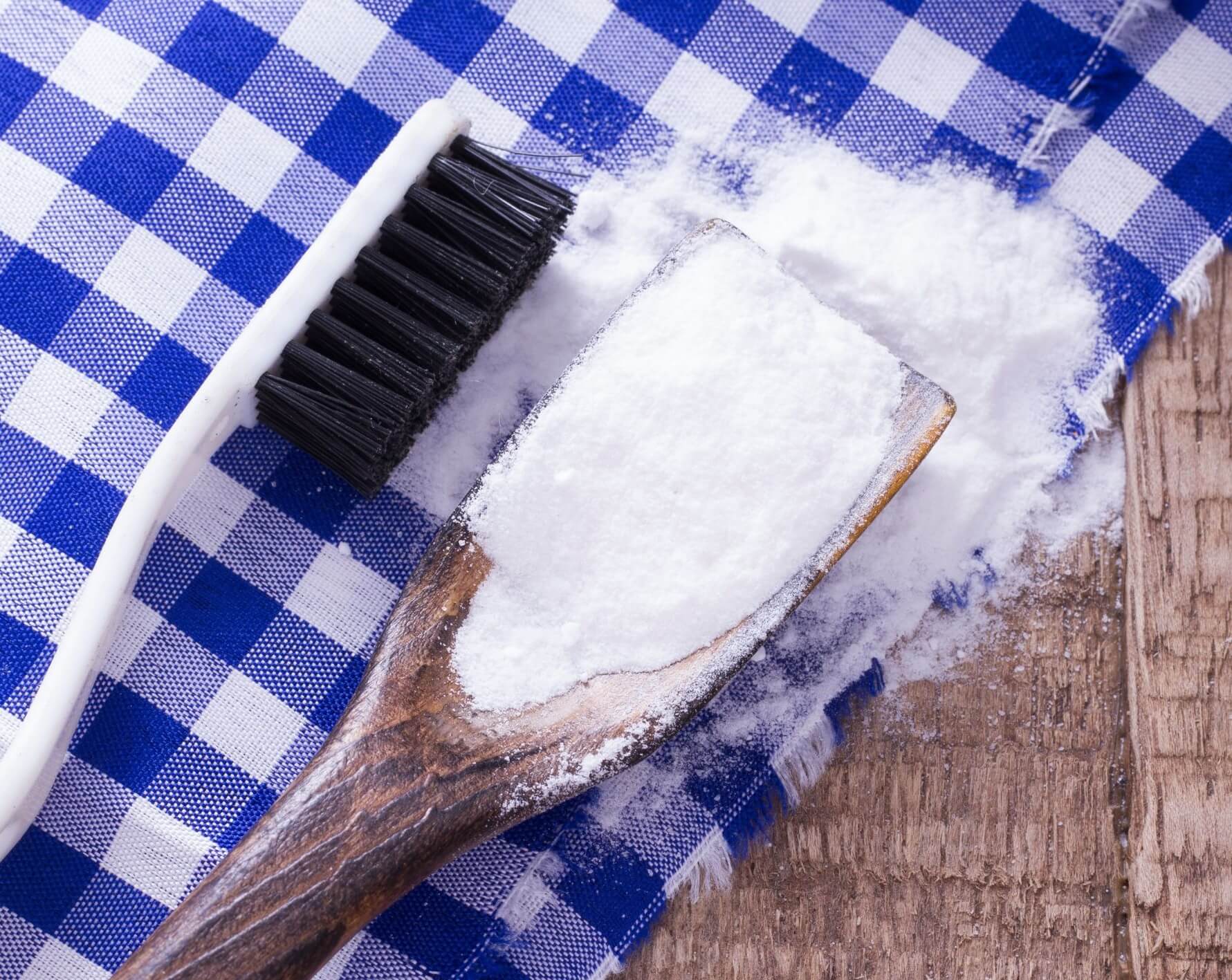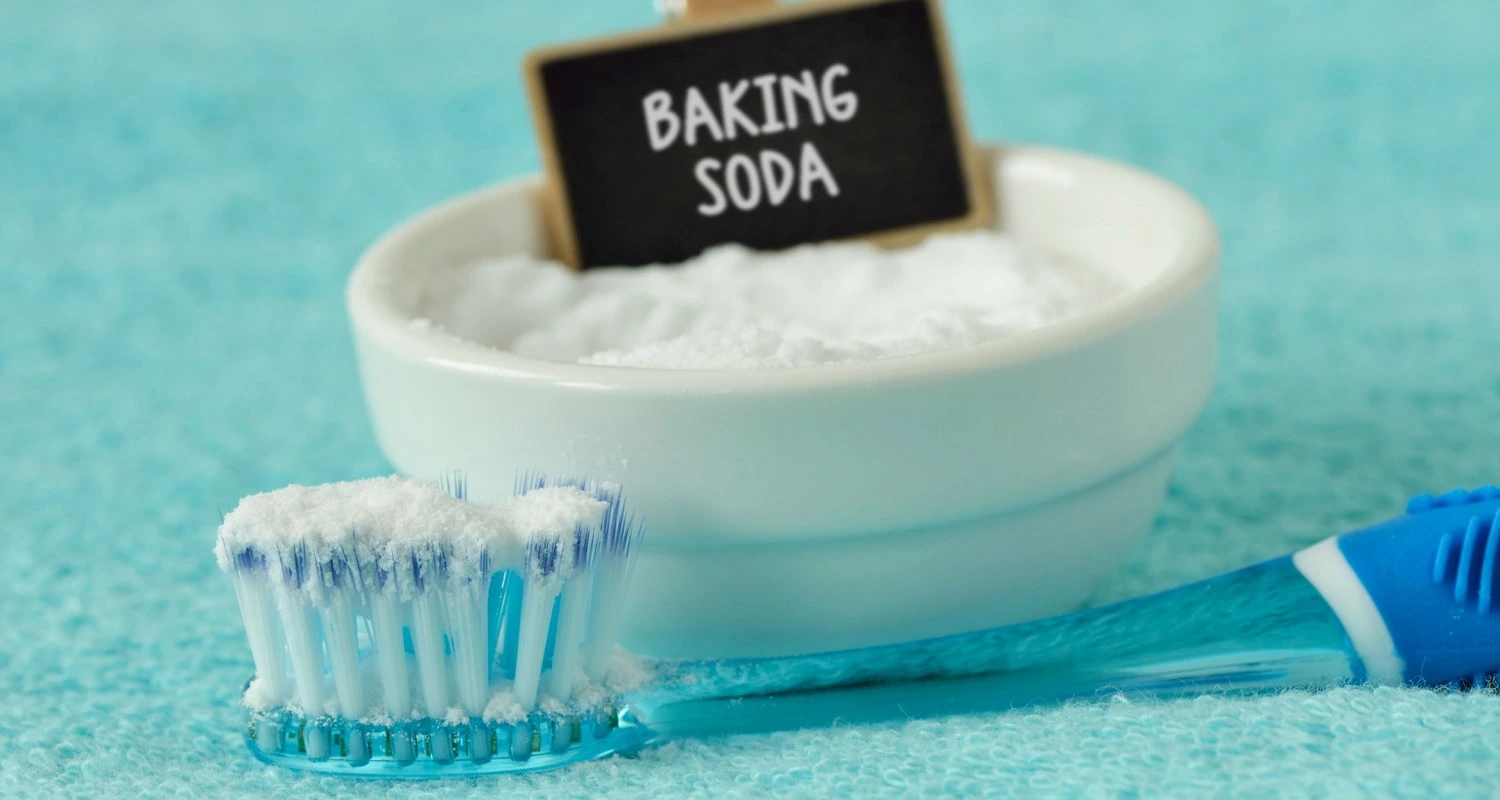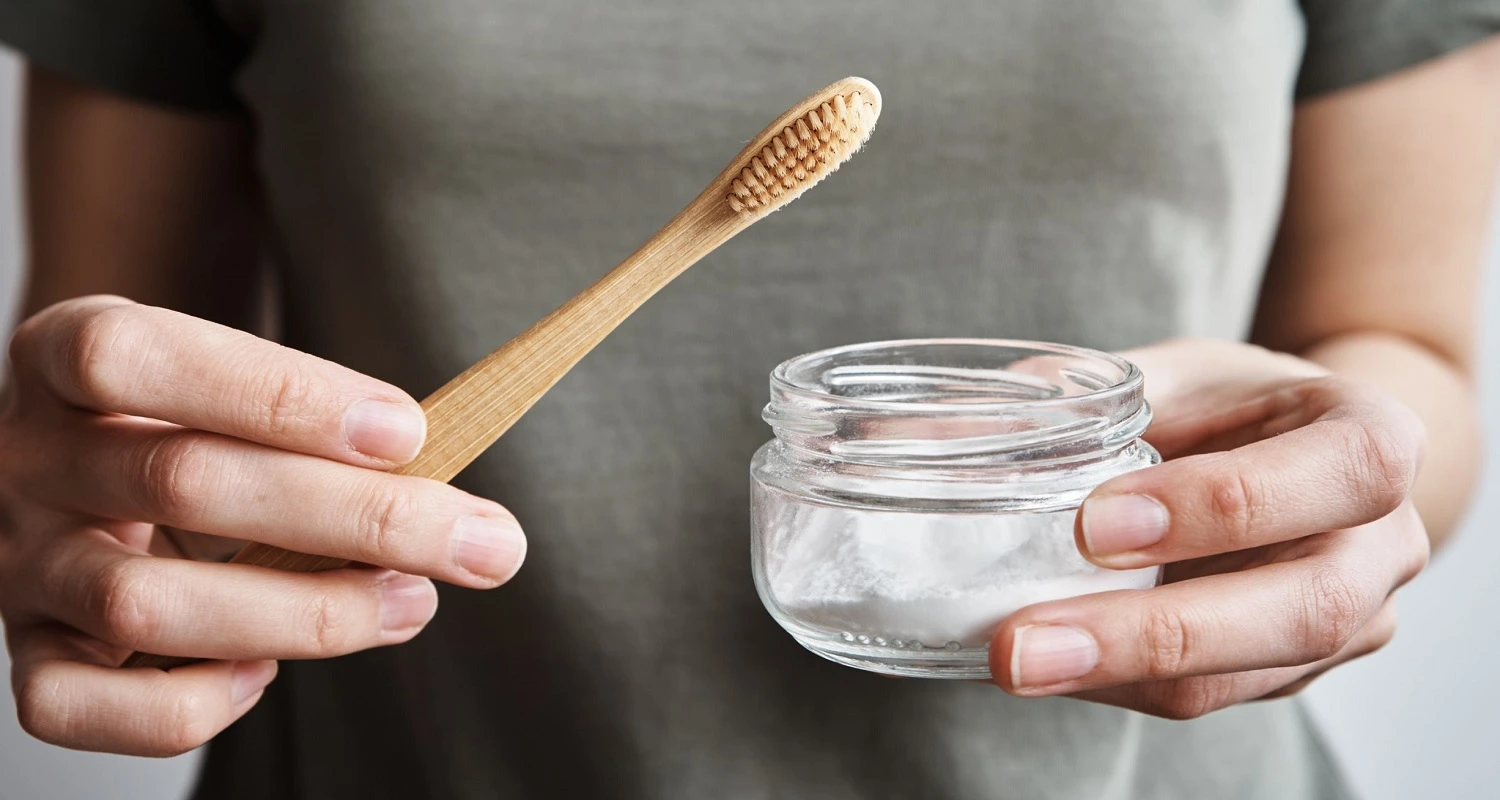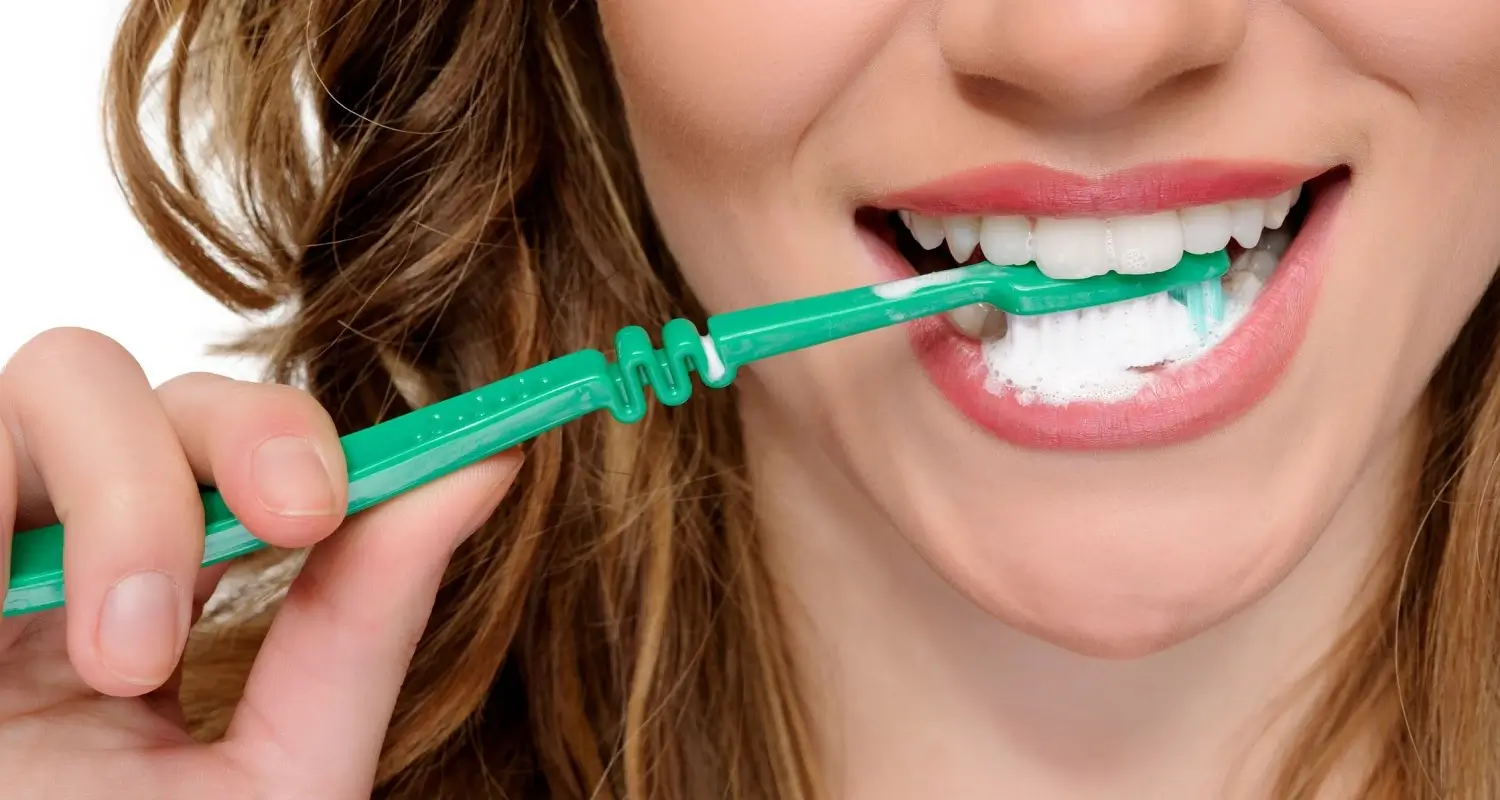Last Updated on: 12th December 2025, 05:50 am
Does Baking Soda Whiten Teeth?: Advantages and Disadvantages
Baking soda, that white powder we all have in the kitchen and is an ace up our sleeves for so many recipes and cleaning tricks, has also made its way into the world of home dental care. It sounds almost magical, right? But let’s really break down what baking soda can and can’t do for the whiteness and overall health of your teeth.
Are you looking for the best teeth-whitening method? Visit this in-depth post to discover these incredible techniques.
Effectiveness and Results of Baking Soda in Teeth Whitening
This very common ingredient has a slightly abrasive texture, which in theory makes it a candidate for removing those superficial stains caused by smoking or the consumption of certain foods and drinks, including:
● Coffee
● Tea
● Red wine
● Soda
● Soy sauce
● Energetic drinks
Many people swear that after using baking soda, their teeth acquire a shine and whiteness they did not have before. But here’s the fine print: baking soda is not a magic wand that can change the intrinsic color of your teeth, nor is it effective on deep stains.
The results you can get from using baking soda to whiten your teeth will vary greatly, depending on how marked the stains are, the tooth structure, and how often the substance is used.
What does Science say about Teeth Whitening with Baking Soda?
Does baking soda whiten teeth? A study conducted in 2023, which sought to compare home teeth whitening methods and toothpaste, found that baking soda could obtain similar results to these products. However, they concluded that more studies are necessary to evaluate the effects of these agents on enamel texture and the stability of the color obtained.
In addition, it is important to mention that this study was carried out on extracted teeth, repeating the application of sodium bicarbonate 2 times a day. This frequency, however, is not recommended by dentists because it could generate sensitivity and porosity of the teeth.
Guide to the Safe Use of Baking Soda to Whiten Teeth
1. Ingredients needed: You only need baking soda and water. Avoid using ingredients that may be abrasive or acidic.
2. Prepare the: Mix a teaspoon of baking soda with a few drops of water until it forms a paste. The consistency should be thick enough to stick to your toothbrush.
3. Apply it carefully: Use a soft-bristled toothbrush. Apply the paste to the toothbrush and brush your teeth in gentle, circular motions, concentrating on stained areas. The duration of tooth brushing should be approximately 2 minutes, to obtain the benefits of the technique and not excessively wear down the tooth enamel.
4. Rinse your mouth: After brushing with baking soda, rinse with water to remove any residue. You can also use an alcohol-free mouthwash to restore the natural pH of your mouth.
5. Brush your teeth as you normally do: After rinsing, brush your teeth with your regular toothpaste to ensure the removal of any baking soda residue and protect your teeth with fluoride.
Safety in Using Baking Soda to Whiten Teeth: 3 Tips
Although using baking soda for teeth whitening is generally safe if done in moderation, there are certain risks to consider. Its abrasive nature can, if used incorrectly, damage tooth enamel. Abrasions to tooth enamel can lead to increased sensitivity and predispose the teeth to cavity formation. Therefore, it is advisable to take the following precautions:
1. Prior dental consultation: Talk to your dentist before starting any teeth whitening regimen, especially if you have sensitive teeth, fillings, or crowns.
2. Observe changes: If you notice any negative changes in your teeth or gums, discontinue use and consult a dentist.
3. Complement with good oral hygiene: The use of baking soda should be complementary to a complete oral hygiene routine that includes regular brushing, flossing, and periodic visits
to the dentist.
Are there Alternatives to Using Baking Soda?
Of course. If you have doubts about baking soda or are looking for something with more noticeable results, there are alternatives. From whitening toothpastes to professional treatments, there are a range of safe and effective options. Professional teeth whitening treatments based on hydrogen peroxide or carbamide peroxide performed by a dentist offer a longer-lasting and more visible solution.
Charcoal is another well-liked all-natural teeth-whitening product. Go to the link to find out more.
Maintenance of Dental Whiteness
Regardless of the whitening method chosen, maintaining the whiteness of your teeth requires constant effort. Regular dental hygiene, including brushing and flossing, is essential. Additionally, avoiding or limiting the consumption of foods and beverages that stain teeth, such as coffee, tea, and red wine, should help preserve teeth-whitening results longer.
Does Baking Soda Whiten Teeth?: Oral Health and Usage
When it comes to teeth whitening, it’s important not to lose sight of the main goal: long-term dental health. Proper oral health care should include regular visits to the dentist, good oral hygiene, and a balanced diet. If used correctly, baking soda can be an addition to your normal dental care routine.
Check our complete guide to the safety of whitening teeth and find out the detailed recommendations.
Conclusion
● Baking soda offers an affordable, viable, and effective homemade option for removing dental stains and making teeth look whiter.
● It is advisable to consult with a dental professional before starting any home teeth whitening treatment.
● Baking soda can be a useful ally in the quest for a whiter smile, as long as it is used wisely and follows comprehensive dental care practices.
● With careful application and a realistic expectation of its results, the use of baking soda can be a valuable addition to your dental care routine.
Frequently Asked Questions
How long does it take to whiten teeth with baking soda?
The time it takes to see teeth whitening with the use of baking soda can vary. The Mayo Clinic points out that toothpastes with baking soda are effective in lightening stains caused by coffee and tobacco. In general, you should start to see changes in the whiteness of your teeth within two to six weeks.
Is it appropriate to brush your teeth with baking soda?
The use of baking soda when brushing the teeth is a technique recognized for its effectiveness in cleaning and whitening teeth. However, it is important to consider that brushing exclusively with baking soda is not endorsed by the ADA (American Dental Association), since it does not contain fluoride, a vital element in preventing cavities. As an alternative, it is recommended to opt for commercial toothpastes that include both baking soda and fluoride.
Is it safe to use baking soda to whiten teeth?
Baking soda is characterized by being a mild abrasive. Although the American Dental Association (ADA) recognizes that baking soda is safe for dental enamel and dentin, some studies rate it modestly for its effectiveness in whitening teeth, as it may not be as effective in removing stains compared to other products.
When should you put baking soda: before or after toothpaste?
To achieve effective teeth whitening with baking soda, it is important to use it properly. Before brushing, mix a small amount of baking soda powder with your regular toothpaste. Then, proceed to brush your teeth as you normally do. ome dentists recommend to brush first with conventional toothpaste and then brush a second time using baking soda.
Share:
References
1. Abidia, R. F., El-Hejazi, A. A., Azam, A., Al-Qhatani, S., Al-Mugbel, K., AlSulami, M., & Khan, A. S. (2023). In vitro comparison of natural tooth-whitening remedies and professional tooth-whitening systems. The Saudi Dental Journal, 35(2), 165–171. https://doi.org/10.1016/j.sdentj.2023.01.007
2. Ghassemi, A., Hooper, W., Vorwerk, L., Domke, T., DeSciscio, P., & Nathoo, S. (2012). Effectiveness of a new dentifrice with baking soda and peroxide in removing extrinsic stain
and whitening teeth. The Journal of clinical dentistry, 23(3). https://pubmed.ncbi.nlm.nih.gov/23210419/
3. How to whiten your teeth naturally: 6 home remedies. (Jul 11, 2018). Medicalnewstoday.com. https://www.medicalnewstoday.com/articles/322421
4. Li, Y. (2017). Stain removal and whitening by baking soda dentifrice. Journal of the American Dental Association (1939), 148(11), S20–S26.
https://doi.org/10.1016/j.adaj.2017.09.006
5. Natural ways to whiten your teeth. (Feb 22, 2022). WebMD. https://www.webmd.com/oral-health/ss/slideshow-natural-teeth-whitening
6. Torborg, L. (Jul 28, 2015). Mayo Clinic Q and A: Many safe choices available to help whiten teeth. Mayo Clinic News Network. https://newsnetwork.mayoclinic.org/discussion/mayo-clinic-q-and-a-many-safe-choices-available-to-help-whiten-teeth/
-
Nayibe Cubillos M. [Author]
Pharmaceutical Chemestry |Pharmaceutical Process Management | Pharmaceutical Care | Pharmaceutical Services Audit | Pharmaceutical Services Process Consulting | Content Project Manager | SEO Knowledge | Content Writer | Leadership | Scrum Master
View all posts
A healthcare writer with a solid background in pharmaceutical chemistry and a thorough understanding of Colombian regulatory processes and comprehensive sector management, she has significant experience coordinating and leading multidisciplina...


















